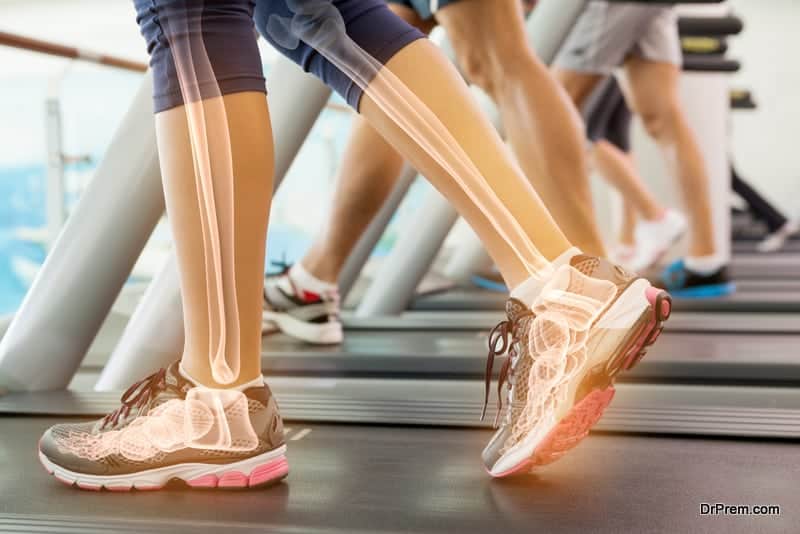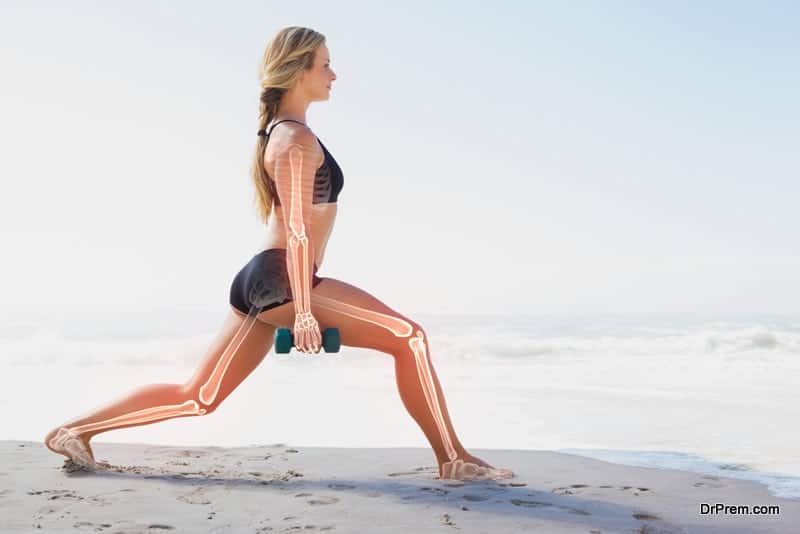For a lot of people, knowledge of bone care generally ranges as far as drinking milk, then stops there. However, as valuable as it is, there is a lot more you can do to support your bone health, and there are plenty of reasons to take that extra step. For example, bones are not only a part of the body’s structure, but they also provide essential protection for organs and muscles, not to mention housing a lot of the body’s stores of calcium.
To support bone health at any age, incorporating supplements like glucosamine can be beneficial, providing additional nutritional support for maintaining strong and resilient bones. While childhood and adolescence are critical periods for bone growth, addressing bone health through proper nutrition and supplements remains important during the elderly years, counteracting the accelerated deterioration that often accompanies aging.
The thing about bone health is that in many ways, a lot of the following advice works best when implemented from an early age. Childhood and adolescence are the times when bones do the most growing, so proper nutrition and care will count for more. This doesn’t mean that you can’t contribute to your bone health at any age, though. In fact, it’s also very important to do so during your elderly years, as bones tend to deteriorate at a faster rate as we get older.
External Factors
Before we get into tips for bone health, it’s important to discuss some of the external factors that impact bones. Here are a few groups who may need added help with their bone support.
Tobacco and Alcohol Use
Studies show that people who heavily smoke or drink are more likely to have bone issues, though it’s not quite clear why. Some believe that alcohol inhibits the ability to absorb calcium, but this isn’t proven.
Gender
Women are more likely to have conditions like osteoporosis, as they have less bone tissue than men to draw from on average.
Size
This last issue also applies to people who are extremely thin or have a naturally small body frame.
Hormone Levels
Hormonal imbalances have been linked to bone loss. In women, estrogen naturally drops due to menopause, leading to the dramatic potential for bone loss. Men may also have bone issues due to low testosterone.
Outside Conditions
Eating disorders, weight-loss surgery, as well as conditions like celiac disease can all affect the ability to absorb calcium, leading to bone issues.
Calcium Management
Drinking milk for healthy bones is something that has been drilled into the heads of many an American children, but this isn’t the be-all, end-all of calcium. This is especially important as more and more people are trying to eschew dairy due to dietary concerns or preferences. Don’t feel that you’re limited when it comes to getting proper calcium, though. Foods like seeds, beans, almonds, and leafy green vegetables all have healthy amounts of calcium without the presence of dairy. If you’re really concerned about this, it may not be a bad idea to talk to a doctor about a calcium supplement. This is great for people who are naturally deficient in calcium and want to get to a proper level quickly.
Added Nutrients
Don’t forget that calcium isn’t the only bone-friendly nutrient you need. For example, Vitamin D helps the body properly absorb calcium and can help protect against bone diseases. In addition, Vitamin K2 helps the body modify osteocalcin, a protein that plays an essential role in keeping calcium from being lost from bones. On the topic of supplements, it may be worth looking out for some collagen supplements as well. Collagen is the main protein in bones and has been a common choice for joint support for some time now. However, some believe that it has its uses for bone health as well.
Get Added Exercise
This may be a bit of a surprise, as exercise may not seem as obvious of a tool for healthy bones like say, healthy muscles. Remember, our bones are an essential structural component of the body, and anything that tests that strength can help make it stronger. Ideally, you want to perform any exercise that loads the bones. Examples include:
- Aerobics
- Dancing
- Tennis
- Weight Training
- Basketball
This even applies to people who are dealing with osteoporosis, though because of the condition of your bones, you’re going to want to get a doctor to approve any exercise you come up with first.
Of course, recovery from an injury requires a lot of different support. In the same way nutrition and exercise support your health, you can get added financial support with legal help from the West Coast Trial Lawyers Personal Injury and auto accident Law Firm.
Article Submitted By Community Writer







